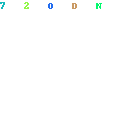Finding the best probability theory suitable for your needs isnt easy. With hundreds of choices can distract you. Knowing whats bad and whats good can be something of a minefield. In this article, weve done the hard work for you.
Reviews
1. Foundations of the Theory of Probability
Feature
Foundations of the Theory of ProbabilityDescription
2013 Reprint of 1956 Second Edition. Full facsimile of the original edition, not reproduced with Optical Recognition Software. "Foundations of the Theory of Probability" by Andrey Nikolaevich Kolmogorov is historically important in the history of mathematics. It is the foundation of modern probability theory. The monograph appeared as "Grundbegriffe der Wahrscheinlichkeitsrechnung" in 1933 and build up probability theory in a rigorous way similar to what Euclid did with geometry. With this treastise Kolmogorov laid the foundations for modern probability theory and established his reputation as the world's leading expert in this field.2. Probability Theory: A Comprehensive Course (Universitext)
Description
This second edition of the popular textbook contains a comprehensive course in modern probability theory, covering a wide variety of topics which are not usually found in introductory textbooks, including:
limit theorems for sums of random variables
martingales
percolation
Markov chains and electrical networks
construction of stochastic processes
Poisson point process and infinite divisibility
large deviation principles and statistical physics
Brownian motion
stochastic integral and stochastic differential equations.
The theory is developed rigorously and in a self-contained way, with the chapters on measure theory interlaced with the probabilistic chapters in order to display the power of the abstract concepts in probability theory. This second edition has been carefully extended and includes many new features. It contains updated figures (over 50), computer simulations and some difficult proofs have been made more accessible. A wealth of examples and more than 270 exercises as well as biographic details of key mathematicians support and enliven the presentation. It will be of use to students and researchers in mathematics and statistics in physics, computer science, economics and biology.
3. Probability Theory: The Logic of Science
Feature
Used Book in Good ConditionDescription
Going beyond the conventional mathematics of probability theory, this study views the subject in a wider context. It discusses new results, along with applications of probability theory to a variety of problems. The book contains many exercises and is suitable for use as a textbook on graduate-level courses involving data analysis. Aimed at readers already familiar with applied mathematics at an advanced undergraduate level or higher, it is of interest to scientists concerned with inference from incomplete information.4. An Introduction to Probability Theory and Its Applications, Vol. 1, 3rd Edition
Description
***** International Edition *****5. Probability Theory: A Concise Course (Dover Books on Mathematics)
Feature
Probability Theory A Concise CourseDescription
The author begins with basic concepts and moves on to combination of events, dependent events and random variables. He then covers Bernoulli trials and the De Moivre-Laplace theorem, which involve three important probability distributions (binomial, Poisson, and normal or Gaussian). The last three chapters are devoted to limit theorems, a detailed treatment of Markov chains, continuous Markov processes. Also included are appendixes on information theory, game theory, branching processes, and problems of optimal control. Each of the eight chapters and four appendixes has been equipped with numerous relevant problems (150 of them), many with hints and answers.
This volume is another in the popular series of fine translations from the Russian by Richard A. Silverman. Dr. Silverman, a former member of the Courant Institute of Mathematical Sciences of New York University and the Lincoln Laboratory of the Massachusetts Institute of Technology, is himself the author of numerous papers on applied probability theory. He has heavily revised the English edition and added new material. The clear exposition, the ample illustrations and problems, the cross-references, index, and bibliography make this book useful for self-study or the classroom.
6. The Theory of Probability: Explorations and Applications






